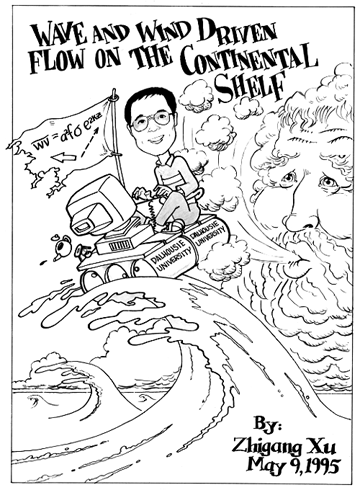

An Eulerian description of mean wave forcing, under the effects of the Earth's rotation and fluid friction, is derived. A general set of equations for the mean flow that includes wave forces is established, and a linearized system is extracted for further study. The study of the linearized system focuses on the response of an Eulerian water column to wave forces, including a step function forcing and arbitrary forcing. The response to steady wave forcing yields a formula for wave-driven flow which unifies the early work of Longuet-Higgins (1957), Hasselmann (1970), and Madsen (1978). Generalization of the results obtained with monochromatic waves to random waves is briefly discussed. Implication of the wave-driven flow to classical shelf dynamics is discussed with an example. A pre-existing CASP data set was explored to test the theory of wave driven flow. The results from this preliminary exploration emphasize the need for an experiment specially designed for investigating flows driven by Coriolis-induced wave stress.
The second part of the thesis introduces a new method for the numerical modelling of the linearized three-dimensional equations for shelf circulation. The method makes full use of the local water column response to Heaviside step force in modelling the global response to arbitrary external forcing in a three-dimensional domain. It is shown that the method can save substantial computational time. This can be valuable in a problem involving repeated integration of the equations of motion, such as data assimilation. An optimum velocity splitting form is also provided for accelerating the convergence of the calculation. Also discussed is the advantage of the eta - Q grid, which is introduced during the development of the method.